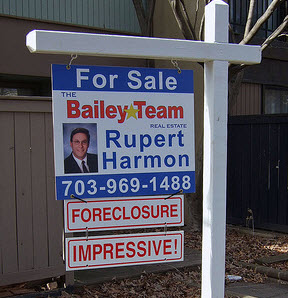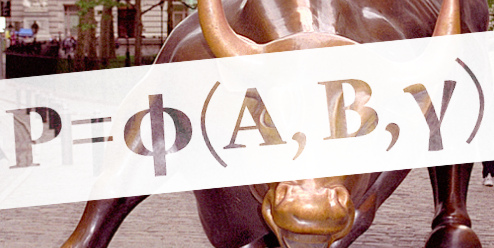../..//2009/06/01/want-to-see-the-top/
Want to see the top 10 biggest bankruptcies in U.S. history so far? [Fortune]
Thanks for visiting Consumerist.com. As of October 2017, Consumerist is no longer producing new content, but feel free to browse through our archives. Here you can find 12 years worth of articles on everything from how to avoid dodgy scams to writing an effective complaint letter. Check out some of our greatest hits below, explore the categories listed on the left-hand side of the page, or head to CR.org for ratings, reviews, and consumer news.
../..//2009/06/01/want-to-see-the-top/
Want to see the top 10 biggest bankruptcies in U.S. history so far? [Fortune]

Here’s more proof that the people who probably should have known how they were making all that housing bubble money never did—even those who personally made tens of millions off of it. The Business blog at The Atlantic notes a quote Hank Paulson, former Goldman Sachs CEO and Treasury Secretary, gave Newsweek: “I didn’t understand the retail market; I just wasn’t close to it.”

The Washington Post has just published a story accusing executives at Chrysler Financial of turning down a $750 million government loan because they “didn’t want to abide by new federal limits on pay,” and instead opted for more expensive private sector financing, “adding to the burdens of the already fragile automaker and its financing company.” Chrysler Financial denies the charge.

Banks are pushing for a change to banking rules that would allow them to ignore mark to market accounting for assets in markets that they deem “inactive.” In other words, if a bank is loaded with worthless assets but decides that the market for those assets is frozen, they can value those assets higher than the market would. Or to simplify it even more, they can create value out of toxic assets. And it looks like now the Financial Accounting Standards Board, which so far has been against this rule change, is caving in.

Yesterday’s post about Borders closing down its unprofitable CD and DVD sections prompted a tip from the owner of a small music label. He says his distributor has already cut off shipments to Borders once for nonpayment (in November 2008), and on Monday the distributor warned labels that they’ll have to agree not to hold him “liable on any future shipments to Borders in case they file for bankruptcy.” Borders’ CFO left in January, which is rarely a good sign for a troubled company. And this morning, the Detroit Free Press notes that the bookseller is facing being delisted from the New York Stock Exchange. We may not have to wait long to find out; CEO Ron Marshall is hosting a conference call with analysts and investors next week.

The Ponz is everywhere! Seriously, was anyone doing any real investing over the past several years? John M. Donnelly of Charlottesville, Virginia, was arrested earlier this week and “indicted for fraudulently taking at least $11 million from as many as 31 investors in an alleged Ponzi scheme,” says their local paper the Hook. He was promising investors returns of up to 22% annually, but naturally had failed to make any investments with his clients’ money since 2002. One anonymous person—who may or may not have been a client, we don’t know—told the paper, “I visited his office once. He had a bunch of computers. It seemed like a very sophisticated operation.”

For 10 years—including the boom times banks enjoyed in the first half of this decade—the FDIC was prevented from collecting fees from 95% of financial institutions, which it would have used to further build up its safety net in the event it would someday have to bail out a bunch of stupid losers who confused banking with alchemy.

Here’s what you can expect from a nationalized Citibank, courtesy of Funny or Die. NSFW warning: this thing is full of f-bombs, and even an r-mine. (Full video after the jump.)

Here’s your daily depressing mortgage news — as employers shed jobs mortgage delinquencies are rising — intensifying and spreading the mortgage crisis.

WeSeed directed us to this sad photo album of cars backed up at ports and manufacturer lots around the world. Maybe they can be handed out in clusters as executive bonuses at the end of the year.

Now if your kids ask you why they have to learn math, you can tell them, “Because if you don’t, you could ruin the global economy, you little beast.” Wired has just published an article that traces the entire clusterfrak back to a formula published in 2000 by a mathemetician working for JPMorgan Chase. Bankers loved its simplicity but completely misused it—despite warnings from academics that it was flawed—to turn pretty much every security into a triple-A, no-risk fabrication.
../..//2009/02/23/the-wall-street-journal-is/
The Wall Street Journal is reporting that the government may end up owning a 40% stake in Citibank. [WSJ]

We’ve written about this before, but as more and more people face foreclosure (last year’s foreclosures totaled 2.3 million, according to the AP) its a good time to remind people of this strategy.

Last week I was watching Lou Dobbs while scrubbing my dentures and complaining about joint pain (two of those things are true, sadly), and I saw a segment on Ohio congresswoman Marcy Kaptur, who is encouraging homeowners to stay put in their foreclosed houses. She argues that many of the loans made during the subprime fiasco may not be legit, and that you should seek legal counseling and demand a mortgage audit from the bank before leaving. Kaptur admits her advice doesn’t trump the sheriff knocking at your door with an eviction notice, but a real estate lawyer told the Toledo Blade that otherwise she has a point.

Part of Wachovia will remain independent — including its massive brokerage business which ballooned after it purchased AG Edwards in 2007, as well as its Evergreen investment management division.

CNBC has put together a quick slideshow list of the top 10 largest Chapter 11 bankruptcy filings in US history based on the pre-bankruptcy assets of the companies in question. It really gives you a sense of the incredible scale of the Lehman Brothers filing — the next closest bankruptcy was Worldcom, which had $103.9 billion in assets before the filing — 535.1 BILLION DOLLARS less than Lehman Brothers. Damn.

In the history of money market funds, says the NYT, only one had ever “broken the buck” or actually lost money… before yesterday. On Tuesday, the managers of a multi-billion dollar money market fund announced that their customers might lose money in the fund– a type of investment that is considered as safe as a savings account.

Regulators are trotting around Washington Mutual trying to get banks interested in buying it. It’s sort of like in the old days when the local beauty queen, last scion of the largest landowner in the county, would get maimed in a horrible combine accident and the town elders would trot her catatonic body around to arrange a marriage so all her fields wouldn’t turn fallow and destroy the local economy for years to come. Wasn’t that given treatment in Faulkner? As I Lay Hemmoraghing Equity?
![]()
Part of ![]()
Founded in 2005, Consumerist® is an independent source of consumer news and information published by Consumer Reports.
